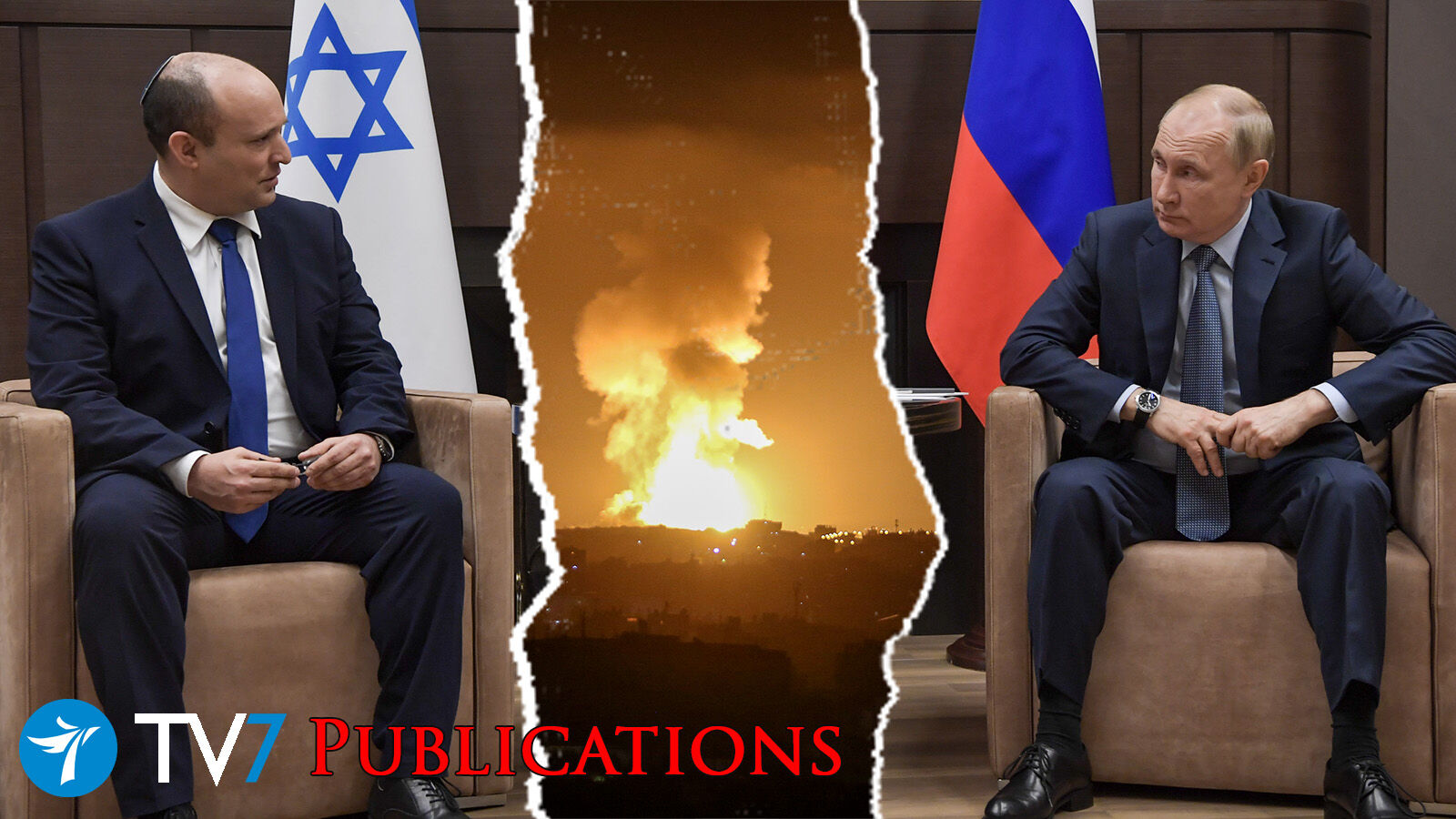When Israeli Prime Minister Naftali Bennett this week meets Russian President Putin for the first time, Bennett must use a realpolitik language.
By President of the Jerusalem Institute for Strategy and Security.
When Israeli Prime Minister Naftali Bennett meets Russian President Vladimir Putin for the first time (this Friday, October 22 in Sochi), Bennett must break free of some of his American baggage and approach Putin in realpolitik fashion.
As background to this meeting, it is important to recall several important historical facts. Israel and Russia are about to mark the 30th anniversary of resumption of relations between the two countries. Bennett should mention in his conversation with Putin that the Jewish People have a moral debt to Russia (formerly, the Soviet Union) which fought fiercely against the Nazis during World War II. The Red Army liberated many Jews from Nazi death camps. Bennett also should acknowledge that the Soviet Union voted in favor of the establishment of the State of Israel at the UN in 1947 (it did so primarily to push Britain out of the region), and that it enabled the transfer of weapons from Czechoslovakia to Israel during Israel’s War of Independence.
This sympathetic stance towards Israel was replaced by a distinctly pro-Arab orientation in the 1950s. The Soviet Union became the arms supplier for most Arab countries and trained their armies, seeking influence in the Middle East at the expense of Western powers. In the wake of the 1967 Six Day War, the Soviet Union led most Eastern bloc countries into severing diplomatic ties with Israel and moved to consistently vote against Israel in all international institutions. Only after the end of the Cold War did Russia reestablish diplomatic relations with Israel and post an ambassador in Tel Aviv.
Today’s Russia is no longer the superpower that was the Soviet Union, but it still is a very important country. It has a large nuclear arsenal, and it does not hesitate to use force in foreign affairs (for example, in occupying Crimea). Moreover, it has a significant presence in the Middle East, a region that Russia views as its backyard.
Today, Russia sells arms to Egypt, Iran, Turkey, and several other Arab countries. Egypt has purchased two Russian nuclear power reactors, which makes Egypt dependent on Russian nuclear fuel for several decades. In Syria, the Russian air force is fighting to preserve Bashir Assad’s regime, proving to everyone that Russia does not abandon its allies – in contrast to the US. Assad has rewarded Moscow by providing Russian forces a naval base in Tartus and an air base in Hmeymim. In general, Russia seeks to maintain good relations with all parties in the Middle East, including Iran and Israel, the Palestinian Authority, and Hamas, Turkey, and Iraq.
President Putin sees Israel as a strong country with impressive military capabilities, willing to use force to attain state interests. He also acknowledges that Israel is a key US ally in the region, and even sees Israel as a potential tool for influence over the United States. A reflection of this was a trilateral meeting of national security advisors from the three countries, held in Israel in June 2019. The three senior officials discussed regional as well as bilateral and trilateral matters, another sign of Russia’s desire to be considered a major power on par with the US.
Unlike some of his compatriots, Putin has a positive attitude towards Jews (reportedly because of childhood experiences). Moreover, he regards the many former Russian Jews in Israel as a Russian diaspora to be cultivated. Israel is the only country in the Middle East where Russian language and culture is vibrant.
In their first meeting, one assumes that Putin seek to take the measure of Naftali Bennett, especially in comparison with the previous Israeli leader (Binyamin Netanyahu) with whom Putin had a good working relationship. Filling Netanyahu’s big shoes is not easy, but Bennett probably has learned something from working closely with Netanyahu.
It would be useful if Bennett broke free of some of his informal mannerism and adopted realpolitik language in his conversation with Putin. This is the language that Putin understands well and is comfortable with. An attempt to speak in American liberal clichés is doomed to failure.
The main meeting of Israeli and Russian interests is in Syria. Moscow wants to preserve the Assad regime. Russia understands that Israel has the power to rock the boat and undermine Assad’s rule. Therefore, Russia has good reason to be sensitive to Israel’s concerns about Iranian entrenchment in Syria. Like Israel, Moscow dislikes a strong Iranian influence in Damascus. This explains why, until now, Russia has allowed Israel to strike at Iranian targets in Syria. It is important that Bennett renew this quiet understanding.
However, Israel-Russia understandings on the Iranian nuclear issue should not be expected. Russia sees a strong Iran as a useful factor that weakens the regional status of the US, which is Russia’s main rival in the international arena.
JISS Policy Papers are published through the generosity of the Greg Rosshandler Family.
